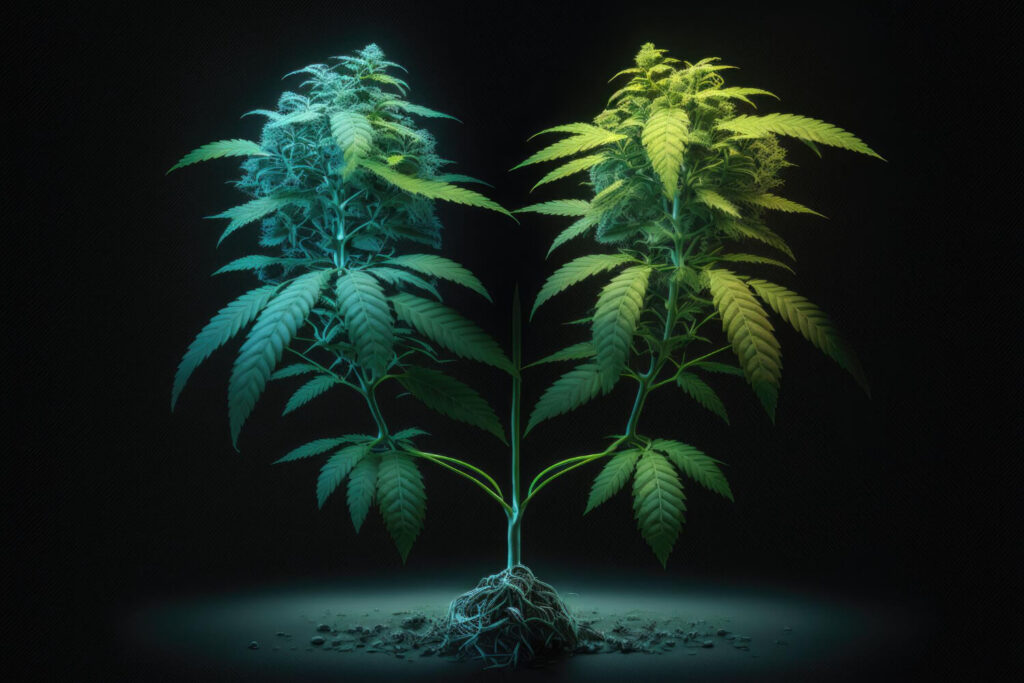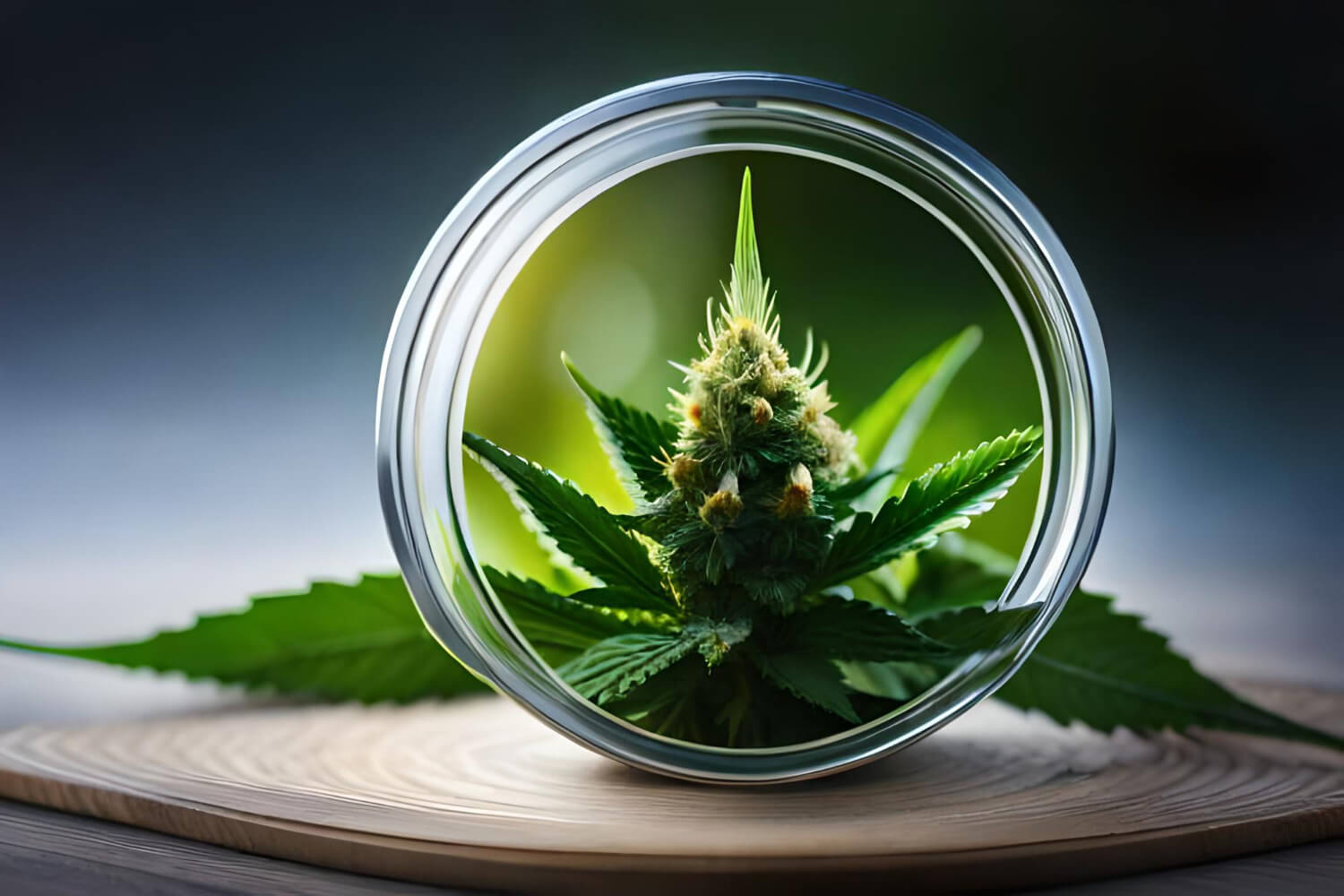For all the CBD enthusiasts out there – come, let’s have a comparative analysis between THCP vs. Delta 9. Both these variants of cannabinoids are unique in their way, and have a potent yet useful impact on the minds and bodies of all those individuals who use them for a particular purpose.
THCP vs Delta 9: Definitions
Before we do a deep analysis, it would be great to know about each CBD variant in detail.
This way, it would help us to understand the main differences between the two systematically and strategically.
Δ9-Tetrahydrocannabinol (Δ9-THC or Delta 9)
Delta-9 THC is the main agent in cannabis plants which stimulates a user into feeling euphoria upon consumption. It occurs naturally within the plant itself.
Rheicosterol interacts with the cannabinoid receptors in human brains and other parts of the body, modulating moods, thinking processes.
Δ9-THC not only is a psychoactive substance, it also has prospective therapeutic qualities. It has even been studied as a possible medication for pain relief; to quell the nausea caused by chemotherapy or radiology treatment; and to stimulate appetite in cancer patients who have lost force due to illnesses and treatments.
Δ9-tetrahydrocannabiphorol (THCP)
THCP, short for Δ9-tetrahydrocannabiphorol, is a more recently pinpointed phytocannabinoid found in cannabis.
Its emergence has piqued interest due to its suspected heightened potency when compared to Δ9-THC.
Initial studies propose that THCP may exhibit a more robust binding capability to cannabinoid receptors than Δ9-THC, resulting in intensified effects.
Given its recent discovery and potential strength, THCP remains a focal point for scientists exploring the intricacies of cannabis chemistry and its impact on human physiology.
THCP vs Delta 9: Potency and Psychoactive Effects
Let’s explore the major differences between the potency and psychoactive effects between THCP and Delta-9 THC.
Tetrahydrocannabiphorol (THCP)
- Preliminary studies suggest that THCP might bind more strongly to CB1 receptors than Delta-9-THC.
- This stronger binding potential implies that THCP could be more potent, possibly resulting in stronger mind-altering effects even with smaller amounts.
- THCP could produce more intense psychoactive responses than Delta-9-THC, which makes it a more potent variant.
Delta-9 THC
- Delta-9-THC binds to CB1 receptors in the brain and nervous system very tightly. This interaction produces effects ranging from light jubilation to radical transformations of consciousness.
- As it is the chief psychoactive component in cannabis, much can vary from strain to strain; method of taking (smoked or eaten); and one individual’s ability to easily take small doses may be another type ‘ s own personal threshold.
- Delta-9-THC’s cognitive impacts are widely researched and known. These effects can be euphoria, calmness and feelings of well-being; distortion of time perception; increased appetite or the ‘munchies’, as they are often called. There may also be negative reactions such anxiety, paranoia or poor coordination.
THCP vs Delta 9: Therapeutic Benefits and Medical Applications
Let’s provide an overview of potential therapeutic benefits for THCP compared to Delta-9-THC.
Tetrahydrocannabiphorol (THCP)
Because THCP is structurally similar to Delta-9-THC and because it appears more potent, interest in its analgesic potential has been sparked. It may have potential to treat the pains of chronic conditions.
Yet future studies may shed more light on the efficacy of THCP in treating disorders including epilepsy, anxiety disorders and depression as well as neurosis or psychiatric illness.
Meanwhile, as scientific investigation proceeds its functionality may become vastly more widespread. Through the process of action upon your cannabinoid system and subsequent physiological sequelae it produces cajoles into service a number of other potential capabilities for therapeutic use:
This might open up new vistas for medical therapeutic applications and treatments.
Delta-9 THC
Delta-9-THC in some formulations has been granted FDA approval. For instance, Dronabinol and Nabilone are two notable examples. Cancer patients suffer from chemotherapy-induced nausea and vomiting, this is where these medications come in.
While gliding under the radar, delta-9-THC has quietly earned praise for its efficacy in relieving pain.
Moreover, in some medical circumstances where patients show signs of reduced appetite, Delta-9-THC is sometimes prescribed to stimulate their appetites.
MS, epilepsy and Parkinson’s disease These conditions are also being capitalized upon in research currently underway regarding the possible therapeutic benefits of Delta-9-THC.
The purpose of this small body of research is to broaden the awareness and use in many medical settings of Delta- 9-THC.

THCP vs Delta 9: Safety Profile and Side Effects
Here is a comparison of their safety profiles and side effects based on available information:
Δ9-THC (Delta 9)
Safety Profile:
- The psychoactive effects of cannabis, or the high it produces, are largely a result of Δ9-THC.
- Some people who use Δ9-THC develop tolerance and dependence, experiencing withdrawal symptoms when they stop using.
- It may increase heart rate, which can be dangerous to people with cardiovascular diseases or predispositions.
- Those who smoke cannabis may irritate their lungs, and could end up having respiratory problems.
Side Effects:
- Short-term memory impairment, impaired motor coordination, altered judgment, and paranoia.
- Anxiety, panic attacks, hallucinations, and potential exacerbation of psychiatric conditions in predisposed individuals.
THCP
Safety Profile:
- It’s suspected that THCP is far more potent than Δ9-THC in its effects. Due to the recentness of this discovery, however, no big scale safety studies have yet been performed on it.
- On the grounds of its potency, however, people may worry about drug interactions. Whether with other psychoactive substances or medications age doesn’t matter there are always problems one does not want before a testosterone cycle tests positive for performance enhancing drugs and an athlete is caught off guard.
- Since little research has been done on the long-term effects of THCP and how these may differ across different systems in the body, it is hard to tell.
Side Effects:
- Since it belongs to the class of cannabinoids, THCP is probably capable of causing similar side effects as Δ9-THC. They may, for example, include cognitive disruptions and perceptual changes as well as possible effects on cardiovascular health.
- The most unfortunate effect of all, however, is that because we perceive THCP to be far more potent than Δ9-THC (actually about five times as strong), people who consume the former might experience adverse effects at concentrations which are higher and perhaps even stronger. That’s a hard pill for me to swallow!
THCP vs Delta 9: Legal Status and Accessibility
When examining the legal status and accessibility of THCP versus Delta-9 THC, notable differences become evident. These differences are important to keep in mind.
Delta-9 THC, as the more recognized cannabinoid, presents a diverse legal scenario worldwide. While it remains prohibited under federal or national regulations in many areas, specific regions – like certain U.S. states and nations such as Canada – have sanctioned its use for medical or recreational purposes.
Conversely, the legal standing of THCP is murkier, primarily due to its recent identification and sparse research.
Given its novelty, THCP has not faced the rigorous legal evaluations or regulatory frameworks seen with Delta-9 THC.
As a result, THCP’s legal acceptance fluctuates widely between jurisdictions. Many areas lack explicit rules or directives concerning its cultivation, distribution, or use.
This ambiguity curtails its availability in regulated settings, positioning THCP products in a legal ambiguity that might expose users to potential legal consequences or uncertainties.
Making an Informed Choice: THCP vs Delta 9 THC
Both substances present potential side effects, including elevated heart rate, cognitive challenges, and anxiety, underscoring the need for well-informed decisions, medical consultation, and compliance with regional regulations. Initial studies hint at heightened effects attributed to THCP’s enhanced affinity for CB1 receptors.
Choosing between THCP and Delta-9 THC requires a thorough understanding of their features, effects, legal positions, and respective advantages and disadvantages.
Delta-9 THC, a well-known cannabinoid present in marijuana, has psychoactive effects and interacts with CB1 receptors, leading to feelings such as euphoria and calmness.
On the other hand, THCP is a newly recognized cannabinoid that bears similarities to Delta-9 THC but might exhibit increased potency.





